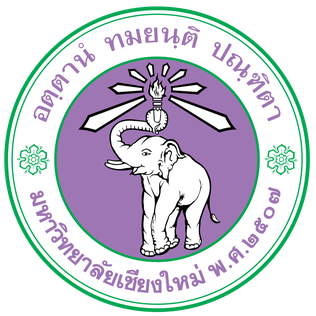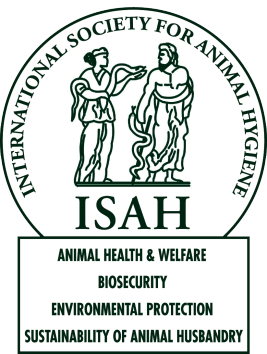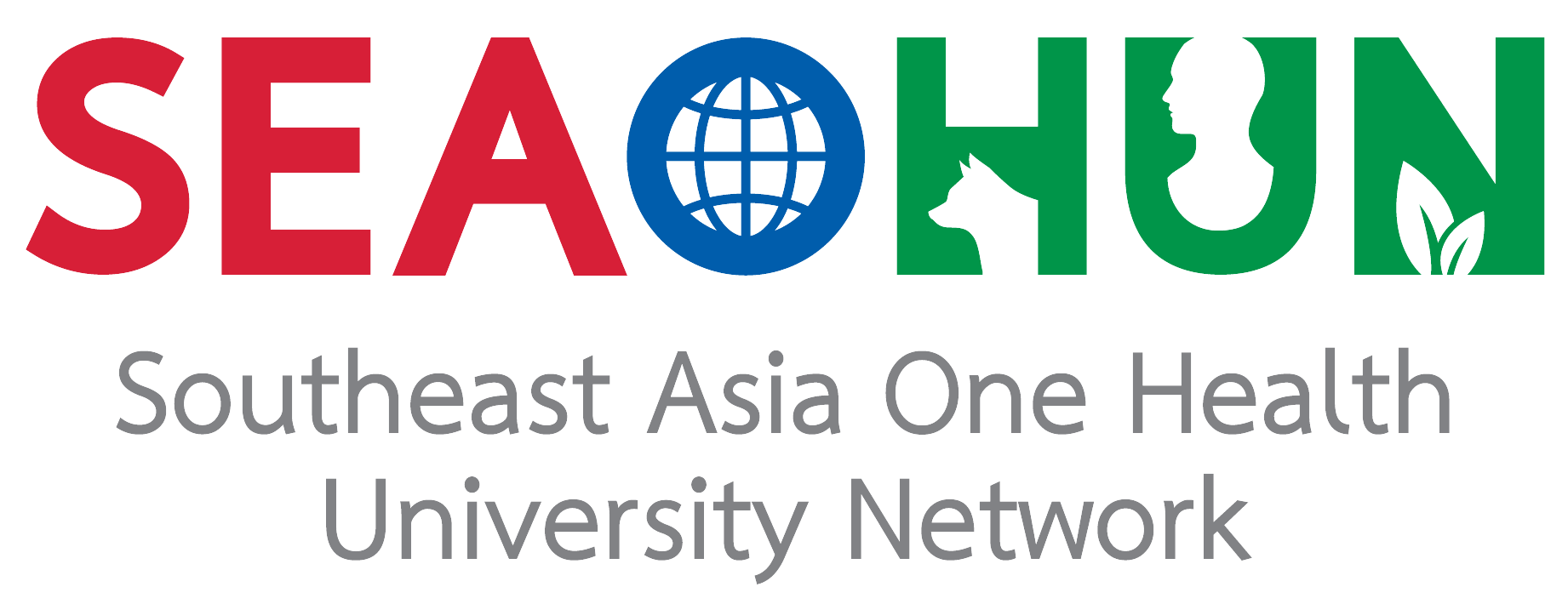
Chiang Mai University (CMU) was founded in January 1964, under a Royal Charter granted by His Majesty King Bhumibol Adulyadej. CMU is the first provincial university in Thailand, based on the government’s policy and the objectives of the northern people, as a center for academic and occupational knowledge in order to benefit the region and the country as a whole.
This university is a place for knowledge collection, studies, research, and knowledge transfer according to academic freedom based on morality and academic excellence, application and transfer, and arts and culture development.
Graduates from Chiang Mai University will emphasize self-training in order to become knowledgeable, thoughtful, and practical persons, as well as being able to manage themselves and other people, and work with ethics and social awareness.
- A Leading University Committed to Social Responsibility for Sustainable Development through Innovation
- Provide education and training to the students.
- Collect and apply the body of knowledge (Research-Innovation).
- Provide academic services as gratitude to the motherland.
- Preserve and nurture Lanna-Thai cultural heritage and natural environment (a supportive mission through an integrated operation with other missions).

Chiang Mai University by the President, Professor, Dr. Lieutenant Yongyuth Sajjawanich (in the Position from 28 April 1975 to 21 January 1977) had an intention to establish a Faculty of Veterinary Medicine at Chiang Mai University, a regional university. The President had contacted a number of senior veterinary professors to ask assistance for with the establishment of the Faculty of Veterinary Medicine at CMU. for example, Associate Prof. Dr. Damrong Plueksarat from the Department of Veterinary Biology, Faculty of Veterinary Medicine, Kasetsart University. At that time, there was a meeting and discussion such as curriculum drafts, but with budget limitations, therefore, the establishment was still not successful.
Later, during the Presidentship of Professor Colonel Dr. Tawan Kanwanpong (in the Position for the second term from 21 January 1979 to 20 January 1981), he encouraged the establishment of the Faculty of Veterinary Medicine again, but still faced the problem of budget limitation. The establishment therefore cannot have been started in that time.
The Faculty of Veterinary Medicine at Chiang Mai University was founded on August 2, 1994 in order to fulfill the need for veterinary professionals. The Faculty of Veterinary Medicine in the North is the inaugural institution of its kind, with a primary objective of generating high-caliber graduates. Provide a 6-year course that awards a Bachelor of Veterinary Medicine degree.
- Faculty of Veterinary Medicine, Chiang Mai University is a Leading University in Asia and serve the society.
- Establish education and higher education focusing on academic excellence, graduates meet the international quality standards and are knowledgeable in moral values according to the philosophy of sufficiency economy
- Produce veterinary researches to be able to support teaching and technology transfer for the socio-economic development of the country
- Provide academic services to society, participating in strengthening the community with the philosophy of sufficiency economy.
- Preserve religion, art and culture, and conserving and developing natural resources and the environment sustainably for a uniqueness of the Northern region
- Develop the management system with good governance principles, self-reliance by using the sufficiency economy philosophy

From the desk of the Executive Board.
Animal hygiene is a unique interdisciplinary field of science where health and welfare of both animals and humans are closely intertwined and hygienic measures are in service of animal and human health, animal welfare and behaviour, public health, bio-security, sustainable animal production and environmental protection making optimal and economic use of resources. The core device is "Prevention is Better than Cure" which is in accordance with the EU future principle to prevent diseases instead of later costly treatment.
In more detail Animal Hygiene can be regarded as the third pillar of veterinary medicine besides curing and care taking representing the science of preventing diseases in a broad sense. This concept encompasses:
- The knowledge of all relevant aspects of the abiotic and biotic environment of animals in any keeping system.
- The understanding of the principles of the interactions of animals with their technical, physical (thermal), chemical and biological surrounding in order to improve their health, welfare and performance without the unnecessary use of drugs being the preconditions for the production of safe and healthy food.
- The recognition of risk factors for animal health and welfare and the description of measures which prevent the development and spread of diseases and pathogens in animals including those that pose a risk to human health (Zoonoses and food safety relevant infections and contaminations such as residues in food derived from animals).
- The knowledge of management, handling and behaviour of animals on individual and herd level.
- The understanding of the effects of animal husbandry systems on the surrounding environment by airborne emissions, manure disposal and spread of diseases (environmental hygiene).
- The definition of prevention strategies including bio-security measures and disinfection.
- The promotion of interdisciplinary networks of scientists working in the field of animal hygiene and related areas and the transfer of "cutting-edge" knowledge on animal hygiene to veterinarians, animal scientists, animal producers, physicians and public health professionals as well as to decision makers in agribusiness and politics.
The concept of hygiene integrates in this way the relevant aspects of animal health and welfare in livestock production, ethics, ecology and consumer demands on a sound economic basis. This idea of prevention is valid both for human medicine and veterinary medicine and serves the health postulate of one world and one medicine. (See also ISAH constitution, art.2).
In most areas science has experienced fast developments in recent years, and animal hygiene is not an exception in that regard. Considering the urgent need for a more flexible and frequent exchange of scientific and practical knowledge of professionals in the field of animal hygiene and related areas ISAH plays an increasing role with it's network in more than 50 countries throughout the world.
The International Society for Animal Hygiene can therefore be considered as a group of scientists and practitioners from universities, farming and industry contributing to efficient, sustainable animal farming with healthy animals, providing wholesome food in a sound environment. Veterinarians and non-veterinary academic scientists (animal science, agricultural economics, engineers, microbiologists, public health professionals, epidemiologists) and respective professionals in animal production and agriculture, who work and/or do research, teaching and education in the field of animal hygiene, can apply for a membership of ISAH, and are most welcome to attend ISAH congresses and conferences.
ISAH was founded in 1970 and the first ISAH congress was held in Budapest in 1973. The XXI ISAH congress will be held at Shangri-La Hotel, Chiang Mai, Thailand during September 16–20, 2024, hosted by Faculty of Veterinary Medicine, Chiang Mai University.
Visit International Society for Animal Hygiene (ISAH) website

The spillover of infectious agents from animals to humans in recent decades has had a significant impact on the health of humans, animals, and our environment. To minimize the impact of future pandemic threats, the Southeast Asia One Health University Network (SEAOHUN) was established in 2011 to develop the next generation of skillful and competent One Health (OH) workforce with support from the U.S. Agency for International Development and its One Health Workforce project.
Since its establishment, SEAOHUN has expanded network membership from 10 universities in Indonesia, Malaysia, Thailand, and Vietnam to over 100 universities in eight countries, including the four founding countries plus Cambodia, Lao PDR, Philippines, and Myanmar. The expansion was made possible with the support of Korea International Cooperation Agency (KOICA) and U.S. Department of State (DOS) through its Lower Mekong Initiative (LMI). Our university members come from multiple disciplines connected to the health of humans, animals, and the environment.
The SEAOHUN educational programs promote and facilitate collaborative activities and projects among the countries with an emphasis on improving One Health workforce capacity with crosssectoral competencies to effectively prevent, detect, and respond to all hazards and emerging threats. Examples of our educational initiatives include the development of One Health core and technical competencies, curriculum development and strengthening, introducing innovative teaching methodologies such as One Health problem-based learning cases, building research capacity to provide an evidence-base for One Health advocacy, One Health student clubs, and scholarship and fellowship programs to support long-term capacity development.
The SEAOHUN Secretariat based in Chiang Mai, Thailand, is a coordinating body of all the country networks. The Secretariat manages subawards with the country networks, facilitates SEAOHUN Executive Board meetings, regional activities, and fosters the establishment of One Health university networks in Southeast Asia and partnership with national, international and non-governmental organizations collaborating to combat all hazards and emerging threats.
The Secretariat represents interests of its country networks at regional meetings/conferences/forums of Global Health Security Agenda (GHSA) Detect 1 and Detect 5 packages, ASEAN+3 Field Epidemiology Training Network (FETN), the Tripartite (FAO/OIE/WHO), among the others. Since July 2019, SEAOHUN has partnered with Pfizer Thailand to address the growing threat of antimicrobial resistance (AMR) in Thailand.
- A regional network of universities in Southeast Asia generating social and intellectual excellence on One Health.
- To develop a resilient and competent One Health workforce by leveraging education, research, and training excellence provided by member universities in Southeast Asia.
Visit Southeast Asia One Health University Network (SEAOHUN) website